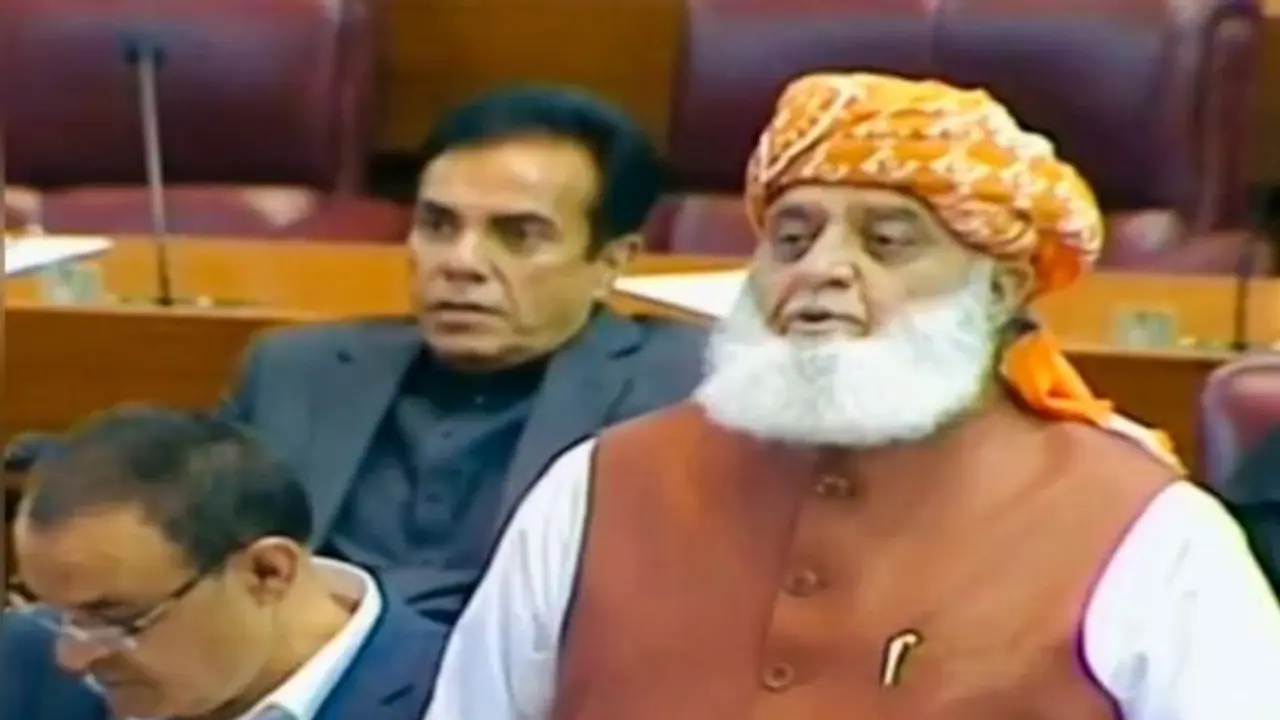Maulana Fazlur Rehman, the chief of his faction of the Jamiat Ulema-e-Islam Fazl (JUI-F) in Pakistan, garnered attention with remarks comparing Pakistan to India in terms of post-independence progress.
Maulana Fazlur Rehman, the chief of his faction of the Jamiat Ulema-e-Islam Fazl (JUI-F) and a prominent right-wing Islamic leader in Pakistan, has made statements comparing his country to its neighbour India. Rehman's remarks, in which he pointed out the disparity in the two countries' post-independence trajectories, have gone viral on social media.

"Let's compare India and ourselves... both countries gained independence on the same day. Today, they (India) aspire to become a superpower while we struggle to avert bankruptcy," he remarked during a fiery speech in the National Assembly, where he criticized the powerful establishment for allegedly manipulating the political system.
Rehman voiced support for his erstwhile rival, the Pakistan Tehreek-e-Insaf (PTI) party. During his address, Rehman emphasized the PTI's right to organize rallies, stating, "It is the right of the PTI to hold a rally." He drew attention to previous elections, questioning the fairness of the process, and highlighted the need for transparency and accountability in Pakistan's electoral system.
Rehman also urged the ruling coalition of the Pakistan Muslim League (Nawaz) and the Pakistan Peoples Party to acknowledge the PTI's majority in parliament and consider allowing them to form the government if they hold such a mandate.
"The demand of Asad Qaiser is correct, and it is the right of PTI to hold a rally," Rehman affirmed during his speech.
In addition to addressing political issues, Rehman expressed disappointment with the role of the establishment and bureaucracy in governing the country. He criticized the perceived imbalance between political decision-making and accountability.
Furthermore, Rehman highlighted the economic challenges facing Pakistan, drawing comparisons with neighbouring India and stressing the importance of upholding Islamic principles in governance.
The JUI-F leader's support for PTI marks a significant shift in alliances within Pakistan's political landscape. Previously an arch-rival of PTI and a vocal critic of Imran Khan's leadership, Rehman's alignment with PTI suggests strategic manoeuvring to negotiate a stronger political position within the country's complex political framework.
